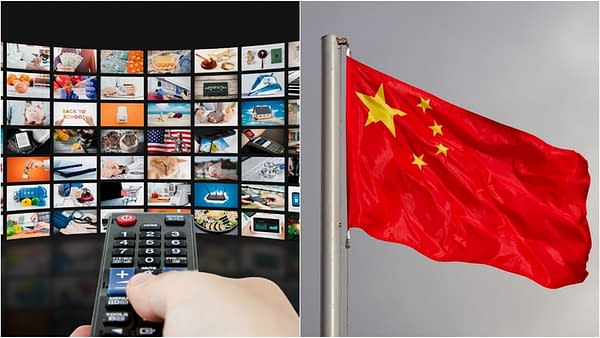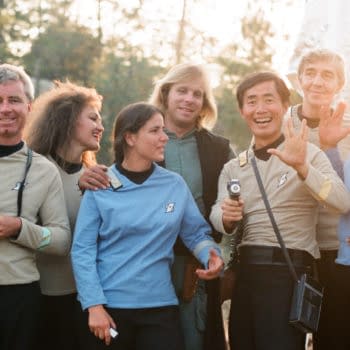Posted in: Opinion, streaming, TV, TV, YouTube | Tagged: cable, censorship, china, LGBTQ, opinion, streaming, television, tv, xi jinping
China "Effeminate Men" TV Ban Extends "Revolutionary Culture" Edict
The Chinese government is continuing to push back against what they deemed offensive culture, with Deadline Hollywood reporting that the latest announcement is a ban on what they term "effeminate men" asking that "revolutionary culture" be touted instead. The edict is part of President Xi Jinping's call for a "national rejuvenation" with business and the public under orders to align with his vision for China. Among the numerous components of his growing manifesto that he's forcing onto broadcasters and other media (seemingly making it up as he goes along) are a crackdown on youth online gaming, boy band culture, gambling, cryptocurrency, and sports. The moves come in large part to discourage what it sees as unhealthy attention to celebrities and distracting activities from the "true national vision."

Chinese Government's Slippery Slope on Media
China TV regulators called for broadcasters to "resolutely put an end to sissy men and other abnormal esthetics", which isn't surprising considering the country's past track record on tolerance and respect towards the LGBTQ community. Broadcasters are also discouraged from promoting "vulgar internet celebrities" and admiration of wealth and celebrity, calling for programming that "vigorously promote excellent Chinese traditional culture, revolutionary culture, and advanced socialist culture" while conveniently forgetting how much China has benefitted from its decades-long partnership with Hollywood. And a very profitable one, at that.
The regulation that limited Chinese youths to three hours per week for online games started on September 1st. There was a recent call to ban South Korean boy bands even as Chinese television ironically (hypocritically) featured talent competition reality programming modeled on K-pop stars. With the curmudgeon edicts taking place, the chilling effect also extends to Hong Kong as a once-thriving arts industry begins feeling the same levels of creative oppression as the rest of China has with censorship reigning supreme. "Any film for public exhibition, past, present, and future will need to get approval," Commerce Secretary Edward Yau said.














